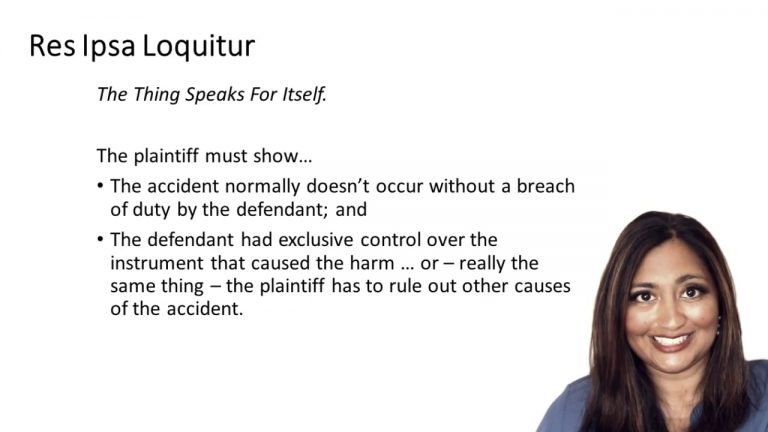SmartBrief
Confirm favorite deletion?
Torts keyed to Best
Dover Elevator Co. v. Swann
Citation:
334 Md. 231, 638 A.2d 762 (1994)Facts
David Swann was injured while attempting to enter an elevator that was not properly level with the ground. He sued both Dover Elevator Company, the company that manufactured, installed, and maintained the elevator, and Prudential Insurance Company of America, the owner of the building. At the trial, Swann offered the direct testimony of Donald Moynihan, an elevator consultant and engineer. Moynihan argued for several instances of specific negligence, including Dover’s negligent cleaning of contacts on the elevator, servicing of the elevator, and record keeping.
The trial court granted a jury verdict for the defendants. Swann appealed, claiming that the trial court erred in refusing toinstruct the jury on the doctrine of res ipsa loquitor. The appellate court upheld the verdict for Prudential, but reversed the verdict for Dover. Dover appealed, claiming that Swann could not both offer direct evidence of breach and claim res ipsa loquitor.
Only StudyBuddy Pro offers the complete Case Brief Anatomy*
Access the most important case brief elements for optimal case understanding.
*Case Brief Anatomy includes: Brief Prologue, Complete Case Brief, Brief Epilogue
- The Brief Prologue provides necessary case brief introductory information and includes:
Topic:
Identifies the topic of law and where this case fits within your course outline.Parties:
Identifies the cast of characters involved in the case.Procedural Posture & History:
Shares the case history with how lower courts have ruled on the matter.Case Key Terms, Acts, Doctrines, etc.:
A case specific Legal Term Dictionary.Case Doctrines, Acts, Statutes, Amendments and Treatises:
Identifies and Defines Legal Authority used in this case.
- The Case Brief is the complete case summarized and authored in the traditional Law School I.R.A.C. format. The Pro case brief includes:
Brief Facts:
A Synopsis of the Facts of the case.Rule of Law:
Identifies the Legal Principle the Court used in deciding the case.Facts:
What are the factual circumstances that gave rise to the civil or criminal case? What is the relationship of the Parties that are involved in the case.Issue(s):
Lists the Questions of Law that are raised by the Facts of the case.Holding:
Shares the Court's answer to the legal questions raised in the issue.Concurring / Dissenting Opinions:
Includes valuable concurring or dissenting opinions and their key points.Reasoning and Analysis:
Identifies the chain of argument(s) which led the judges to rule as they did.
- The Brief Prologue closes the case brief with important forward-looking discussion and includes:
Policy:
Identifies the Policy if any that has been established by the case.Court Direction:
Shares where the Court went from here for this case.

 6m 37s
6m 37s